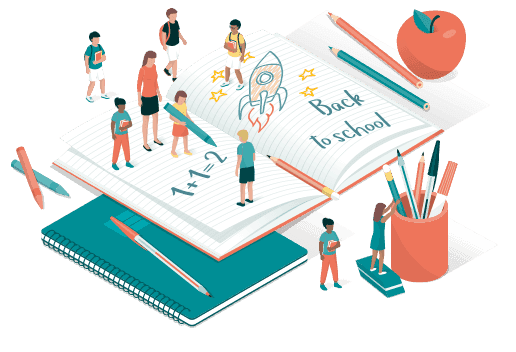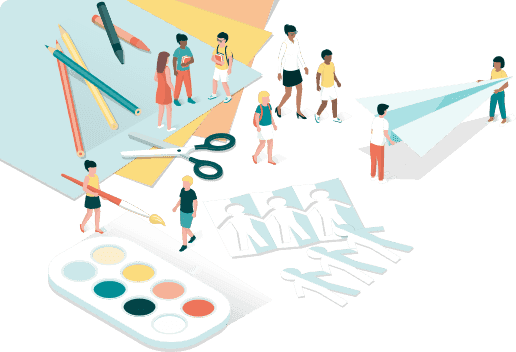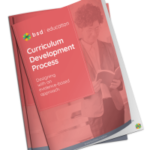The curriculum is divided into 3 courses:

Beginner (40 hours) Technology and Me

Intermediate (40 hours) Technology and the Community

Advanced (40 hours) Technology and the World
First Steps in Coding
Skills
- Intro to HTML, CSS & JavaScript Coding
- Real world technology creation
- Build Websites & Web Based Applications
- Code a Trivia Game
- Idea to digital artifact creation


Best Practices In Curriculum Design At Codenbeyond
Along with our foundational pedagogy and learning cycle, we also follow evidence-based practices for curriculum design
****
Teaching through Real-World Connections
Our lessons are designed to create authentic learning experiences where students can experience connections to real world issues and problems, exposing them to key global issues and themes.
Teaching Social Emotional Learning
Our curriculum designers use a social-emotional learning lens when designing lessons that connect to key issues in social justice, critical race pedagogy, and culturally relevant practices.
Best Practices in Computer Science Education
Our team consults best practices in computer science education in our approach to designing and developing coding projects that align to rigorous standards such as CSTA and ISTE.
User Experience and Interface Design
We design our platform so that students and teachers can easily operate and navigate through it in an intuitive and logical manner. Continual improvement on the design of our product relies on feedback from customers and prioritization for new developments and features, using the RISE methodology for continuous improvement.
Digital Skills For The Workforce Of Tomorrow
BSD Education Learning Cycle
To prepare students for undefined futures where artificial intelligence, augmented reality and data privacy are all emerging topics with tremendous impacts on society, we embed 4 approaches into our curriculum that have been identified as future proof and fundamental:
a) Computational Thinking
b) Design Thinking
c) Coding/Programming
d) Digital Citizenship

Using A Logic Model To Describe Our Evidence-Based Approach
A logic model is a tool that researchers and practitioners use to align the objectives of a product or service to measured outputs that are proven by peer-reviewed research. The research that best supports the Outcomes in our logic model are divided into 3 categories: Teacher Ability, Technical Skills, and Project-Based Curriculum.

At BSD Education, we know that in order to provide high quality products to teachers and students, it must start with a strong foundation that comes from research, proven methods, and from best practices within the fields of education and the workforce.

**********
Download Curriculum Development Process

